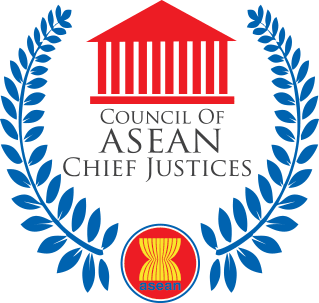For civil matters, legal proceedings are commenced either by a Writ of Summons or an Originating Summons. A Writ of Summons is mandatory for proceedings concerning a substantial dispute of fact, while Originating Summonses are generally more appropriate for disputes concerning matters of law. Should it later emerge that there are substantial disputes of fact, an Originating Summons can be converted into a Writ of Summons.
To commence a writ action, the plaintiff must file the writ with the Court Registry. It is typically valid for six months but where it is to be served out of jurisdiction, it is valid for 12 months. The writ must be served personally on each defendant. The plaintiff can do so by leaving the writ at the defendant’s registered address or through the defendant’s solicitor. Leave must be granted by the court if the plaintiff wishes to serve the writ out of Singapore.
Litigants should consider several matters before commencing their action. First, an action must be commenced within the limitation periods prescribed by law. Generally speaking actions in contract and tort have a limitation period of six years, personal injury actions have a limitation period of three years, and actions to recover land have a limitation period of 12 years. Second, Singapore must be the appropriate forum for trying the dispute, or that it is in the interests of justice to try the dispute in Singapore. Otherwise the court may stay the dispute for it to be tried elsewhere.
Once an action is commenced, the plaintiff must prepare and endorse a statement of claim. This statement of claim can be endorsed together with the writ or separately. The statement of claim specifies the nature of the claim and the relief sought. The defendants may make a statement of defence to the claim, and may file a counterclaim to the original claim. The plaintiff may reply or file his own defence to the counterclaim. 14 days after the last reply, the pleadings close.
The parties may apply to court to dispose of the matter without trial. The plaintiff may apply for a default judgment if the defendant fails to enter an appearance or file his defence, or for a summary judgment if it believes that there are no issues to be tried. The defendant may apply to strike out the plaintiff’s pleadings if it believes that the plaintiff’s case discloses no reasonable cause of action, is scandalous, frivolous or vexatious, or is otherwise an abuse of the court’s process. Either party may discontinue his action, defence, or counterclaim. Depending on the stage of proceedings this may require the court’s leave.
At any stage of the proceedings it may be necessary to apply to court for provisional remedies. These include interlocutory injunctions, Mareva injunctions, or Anton Piller orders, among other things. The parties may also take out other interlocutory applications such as for the discovery and inspection of documents or to ask the opposing party to give security for costs. These matters will be taken prior to the court proceedings.
To facilitate matters, the Court Registry will typically hold pre-trial conferences (“PTC”) closer to the trial. At the PTC, the Registrar will take stock of the parties’ progress and give directions for the next steps that the parties must take in the proceedings. The PTC is supplemented by the Summons for Directions, filed by the plaintiff to obtain formal directions from the court, such as trial dates. In Singapore, examination-in-chief is done by way of written affidavits. Parties must prepare, file, and exchange affidavits of evidence-in-chief of each witness. These are sworn statements that the witnesses can be cross-examined on at trial.
The burden of proof is on the plaintiff at trial, to prove his case on a balance of probabilities. The plaintiff’s lawyer therefore opens the case at trial and then the plaintiff’s witnesses will take the stand to be cross-examined by the defendant’s lawyer. The process is repeated for the defendant and the parties may make closing submissions at the end of the trial. In certain cases, the judge may choose to bifurcate the trial between liability and assessment of damages.
Once granted, a judgment may be enforced by one of the writes of execution available to the judgment creditor. Where he is unable to do so in Singapore he may choose to register his Singapore judgment in the foreign country on the basis of reciprocity of enforcement between the two countries. If third parties are involved, the judgment creditor may also decide to apply for aid from the court to enforce his judgment, such as in the form of garnishee proceedings. The judgment creditor is usually also entitled to costs of an action, which may include fees, charges, and disbursements. This is, however, subject to the court’s discretion.
